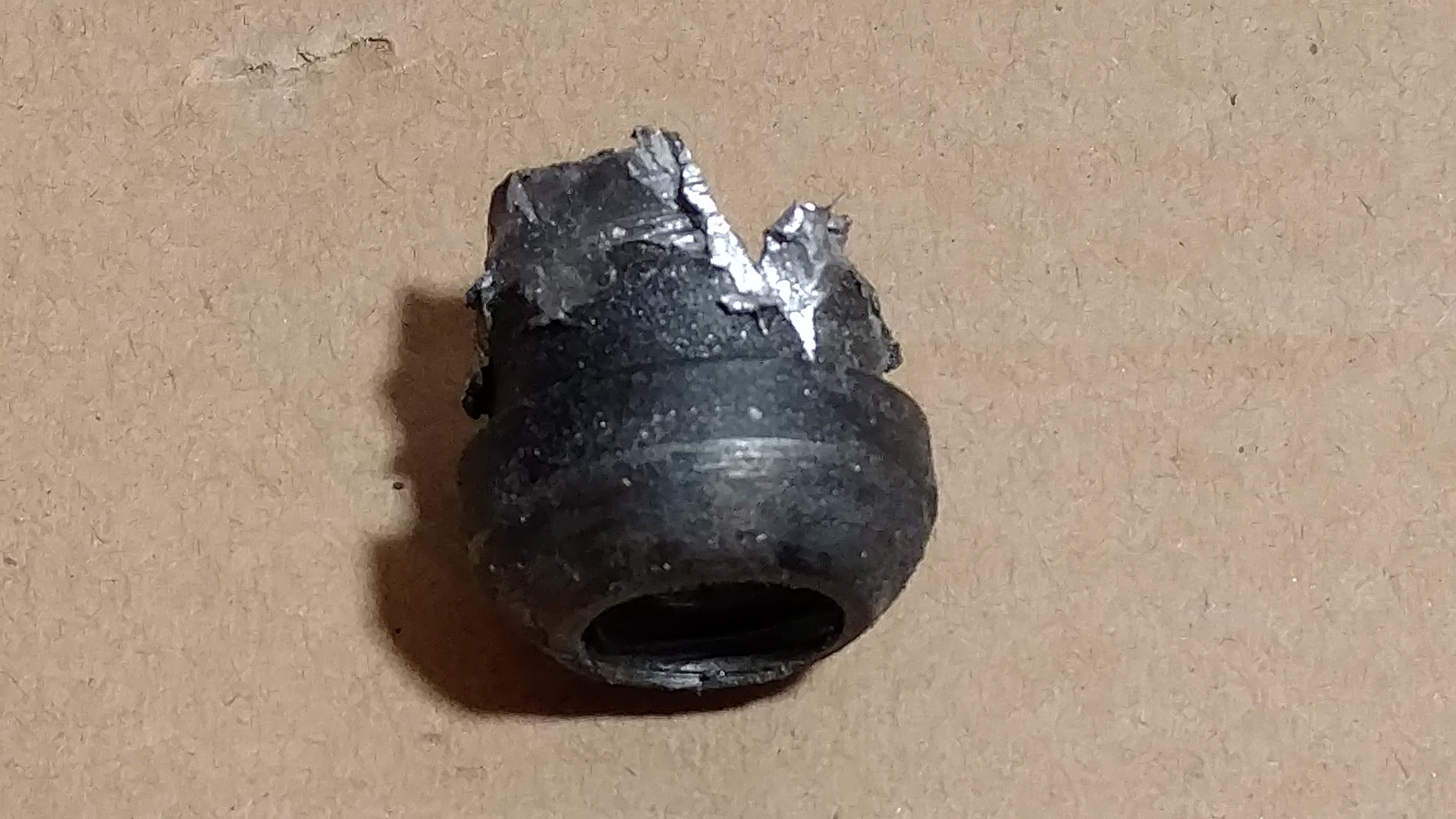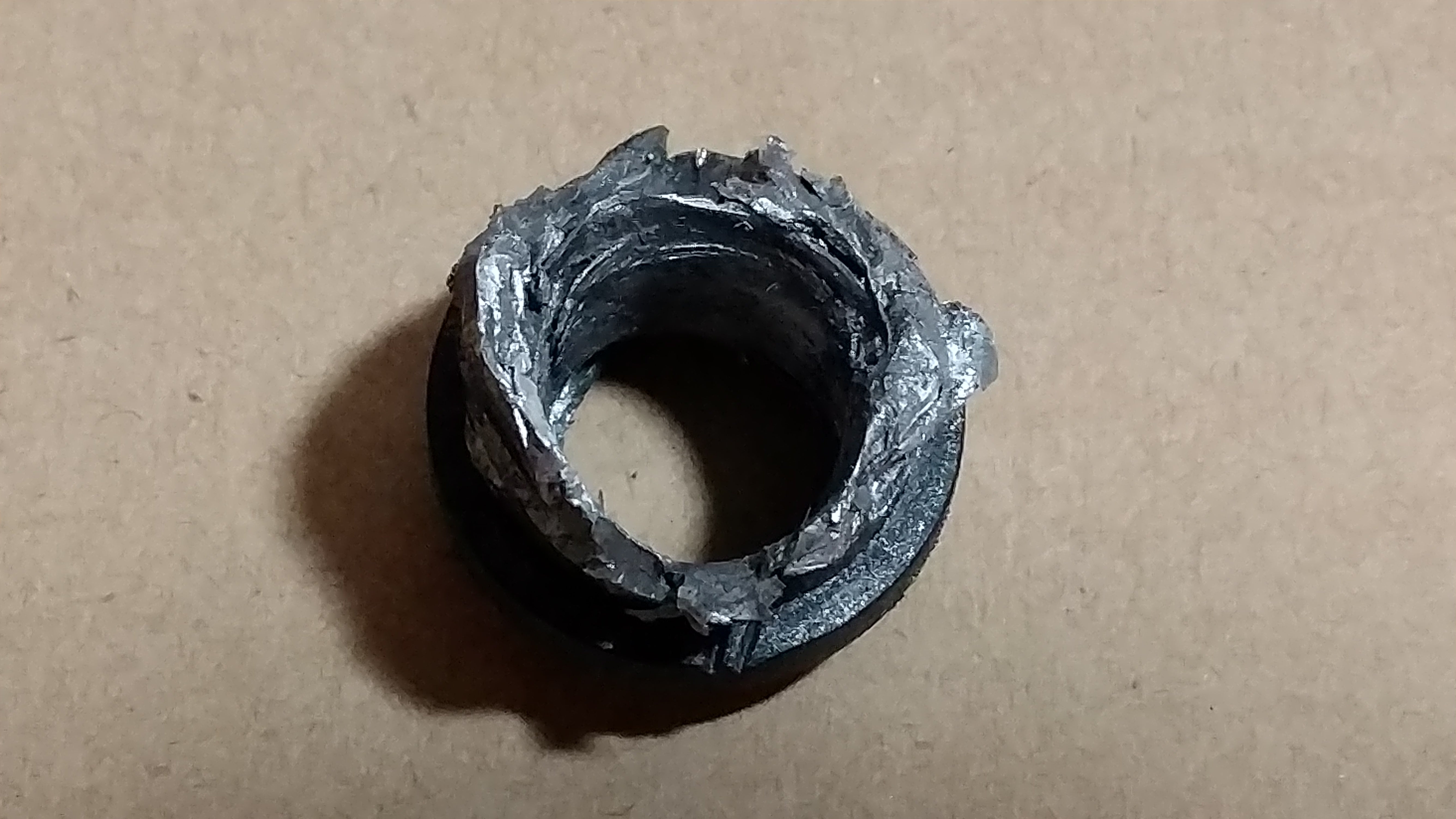 "Joe6pack" (joe6pack)
"Joe6pack" (joe6pack)
11/20/2016 at 16:10 • Filed to: None
 2
2
 10
10
 "Joe6pack" (joe6pack)
"Joe6pack" (joe6pack)
11/20/2016 at 16:10 • Filed to: None |  2 2
|  10 10 |
You are looking at the aftermath of a broken lug nut. This was after drilling out the stud. All I wanted to do was check my front wheel bearings in anticipation of my upcoming track day. Oh and I did need new bearings.


 dogisbadob
> Joe6pack
dogisbadob
> Joe6pack
11/20/2016 at 16:15 |
|
I hate when shops overtorque lug nuts
 Dr. Zoidberg - RIP Oppo
> Joe6pack
Dr. Zoidberg - RIP Oppo
> Joe6pack
11/20/2016 at 16:17 |
|
Excellent
 Joe6pack
> dogisbadob
Joe6pack
> dogisbadob
11/20/2016 at 16:21 |
|
Weeelllll, since I don’t use shops, I am going to have to take the heat for this one. I followed the specs, but if I erred, I erred high. These are those light alloy Porsche lug nuts. They are incredibly light, but very soft. The replacements I ordered are steel.
 gogmorgo - rowing gears in a Grand Cherokee
> Joe6pack
gogmorgo - rowing gears in a Grand Cherokee
> Joe6pack
11/20/2016 at 16:58 |
|
I’ve done this quite a few times on the MJ, and just recently on a buddy’s ‘09ish TRD Matrix. Cheap nuts with a chrome plated “cap” over the nut to make it look pretty. Especially if they’ve been hammered on and off with an impact, deforming the caps, water and dirt and salt get in, rusting the but out from under the cap. As the cap loosens and stretches, the larger socket needed just accelerates the cap stretching, and also turns the nut into a circle. And once the cap comes off, any attempt to use the correct size socket on the now-smaller nut also just turns it into a circle. And those lovely extractor sockets that work so well on everything else just turn the soft, corroded, mostly round lug nuts into smooth cones. I’ve drilled out six now on the MJ, and two on that Matrix. Don’t cheap out on lug nuts...
 RacinBob
> Joe6pack
RacinBob
> Joe6pack
11/20/2016 at 17:11 |
|
The other thing with those aluminum nuts is with a little dirt they will gall. Unless you are doing pro stuff with pro mechanics, they are not worth the hassle.
By the way, a bit of wheel lug advice. Do not lubricate the studs. The torque specs are for dry studs. If you grease them, you get the risk of over torquing them and you will fail the studs.
True -story - I was at an arrive and drive endurance weekend and I watched one of the mechanics twist and twist a lug nut without reaching torque. I interrupted him and asked what was going on. When we pulled the wheel, two of the studs had stretched about 3/4 inch .These were brand new ARP studs.
I have been doing wheel nuts at 85 ft pounds for over 30 years and never had one come loose. 85 is plenty for racing. Torque the nuts properly and double check that they are tight and you will never have a problem.
 RacinBob
> Joe6pack
RacinBob
> Joe6pack
11/20/2016 at 17:14 |
|
Ps another word is do not rely on torque sticks unless you have to because you are doing hot endurance pit stops. My mechanic always checks with a torque wrench when he uses torque sticks just to be safe.
 Joe6pack
> RacinBob
Joe6pack
> RacinBob
11/20/2016 at 17:37 |
|
Haynes manual calls for 96 ft-lbs which is probably what I did. I am going with 85 on the new ones.
 RacinBob
> Joe6pack
RacinBob
> Joe6pack
11/20/2016 at 19:42 |
|
My experience with honda’s and various GM tow vehicles which all are 85 ft pounds. But here’s a pretty good thread on Porsche lugs. My advice is do what they say, 95 ft pounds, I wouldn’t disagree. http://rennlist.com/forums/911-forum/2477-what-is-the-torque-spec-for-911-wheel-lugs.html
 cluelessk
> RacinBob
cluelessk
> RacinBob
11/20/2016 at 20:03 |
|
Pretty sure my Cobalt recommends 100 ft pounds for it’s lugs. Think it’s even more on full size trucks.
 ateamfan42
> RacinBob
ateamfan42
> RacinBob
12/12/2016 at 09:57 |
|
I think torque sticks are just meant to limit the peak torque delivered by the impact gun so the lugs aren’t over-tightened. Ideally, one should be using a torque stick a bit below the specified lug torque, and then completing the operation with a torque wrench.